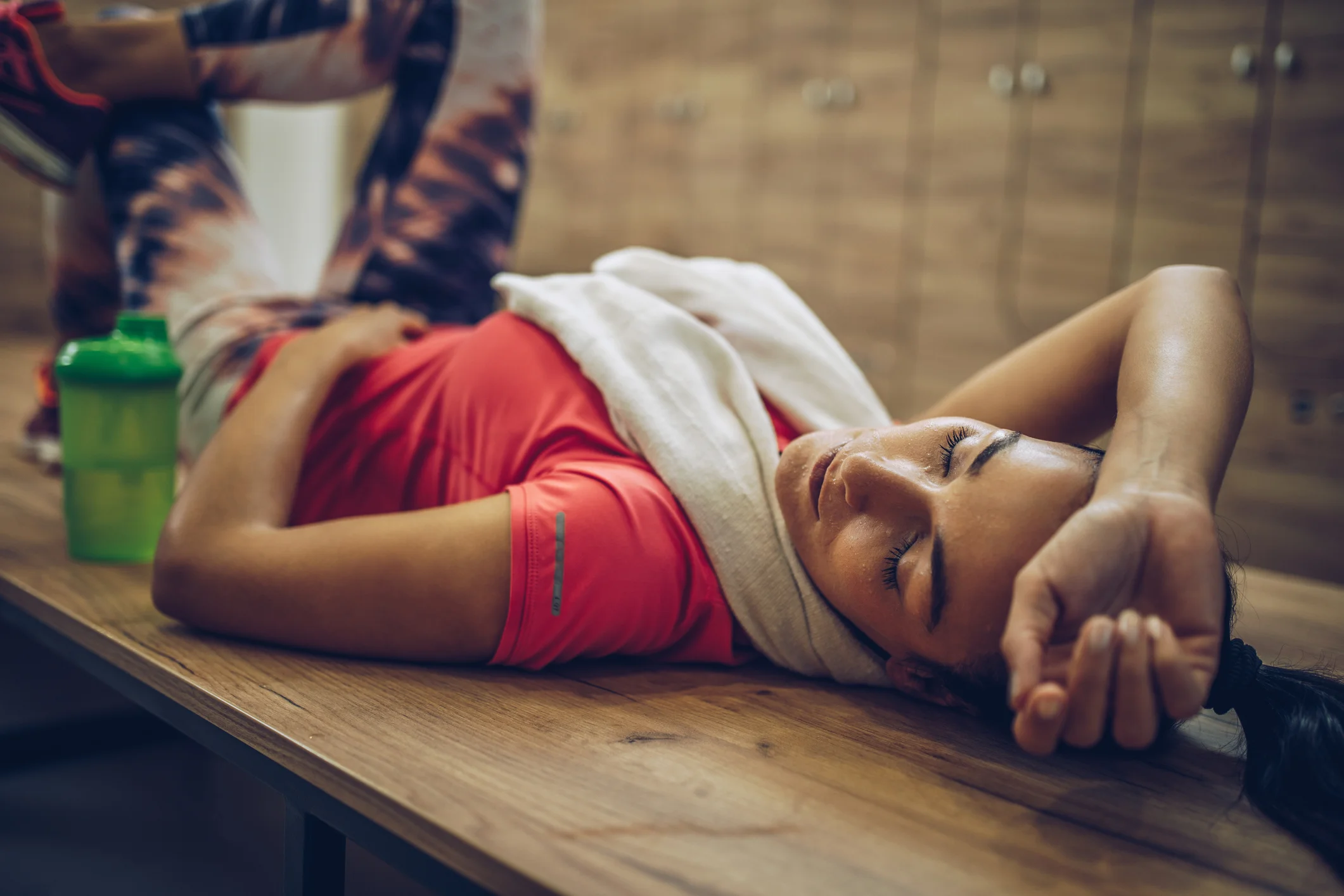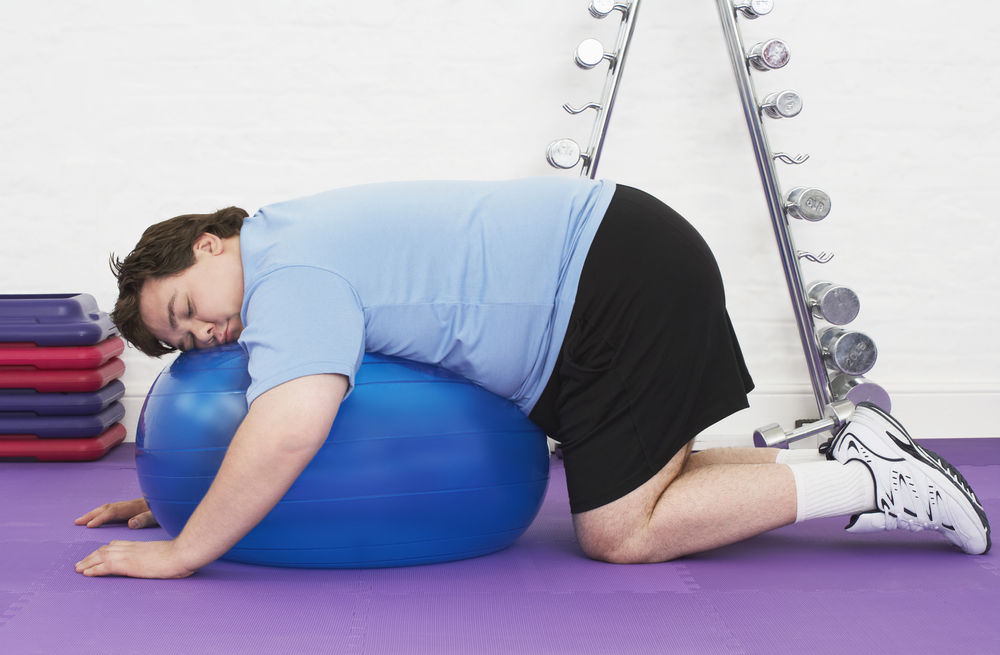Regular physical activity is one of the best natural sleep aids available. But what is it about exercise that helps promote better, more restful sleep? Today we find out the scientific reasons why working out benefits the sleep-wake cycle. From the effects exercise has on regulating circadian rhythms and reducing stress, to its impact on core body temperature and appetite hormones tied to quality rest – we’ll look into the physiological mechanisms behind why breaking a sweat leads to sounder slumber.

Contents
Why Exercise Helps You Sleep Better?
Exercise can significantly improve the quality of your sleep due to a variety of physiological and psychological reasons. Here are some key ways in which regular physical activity contributes to better sleep:
1. Reduces Stress and Anxiety:
Regular exercise is a powerful stress reliever. It helps lower the body’s stress hormones, such as cortisol, over time and stimulates the production of endorphins, the body’s natural mood elevators and painkillers. Lower stress levels and anxiety lead to a more relaxed state that can make falling asleep and staying asleep easier.
2. Regulates Circadian Rhythm:
Engaging in regular physical activity, especially when done in the morning or afternoon, can reinforce the natural circadian rhythm of the body. Exposure to natural daylight helps keep your internal clock on a healthy sleep-wake cycle, so you feel more alert during the day and sleepier as bedtime approaches.

3. Increases Sleep Duration and Quality:
Exercise, particularly aerobic exercises, increases the amount of deep sleep you get. Deep sleep is crucial for physical rejuvenation, immune system functioning, and brain health. People who exercise regularly tend to spend more time in deep sleep, which helps repair and rejuvenate the body and mind.
4. Reduces Sleep Onset Latency:
For those struggling with insomnia, exercise can be a beneficial remedy. Regular physical activity has been shown to reduce the time it takes to fall asleep. This is partly because exercise can increase body temperature, and the post-exercise drop in temperature may promote falling asleep faster.
5. Improves Sleep Disorders:
Regular exercise has been shown to help alleviate symptoms of sleep disorders such as sleep apnea and restless leg syndrome. By improving overall health, exercise can reduce the severity of these conditions and consequently improve sleep quality.
6. Enhances Physical Health:
Exercise contributes to better physical health by managing weight, improving cardiovascular health, and reducing the risk of chronic diseases. A healthier body is less prone to sleep disturbances caused by ailments like heart disease, diabetes, and obesity.
Is There A Best Type Of Exercise For Sleep?
No, there’s not necessarily a single “best” type of exercise for sleep. However, regular aerobic exercise and moderate-intensity workouts are generally recommended for improving sleep quality. Here’s a breakdown:

Beneficial Exercise Types:
- Aerobic Exercise: Activities like swimming, biking, jogging, or brisk walking that elevate your heart rate and get you breathing harder can promote better sleep, especially deep sleep.
- Moderate-Intensity: Studies suggest moderate-intensity workouts might be even more effective for sleep than vigorous exercise. This means you can carry on a conversation while exercising.
- Strength Training: While not directly impacting sleep as much as aerobic exercise, strength training can improve overall health and reduce anxiety, which can indirectly contribute to better sleep.
Key Points to Consider:
- Consistency is Key: Aim for at least 30 minutes of moderate-intensity exercise most days of the week for optimal sleep benefits.
- Timing Matters: Avoid exercising too close to bedtime (ideally at least 3 hours before) as it can elevate your heart rate and make it harder to fall asleep.
- Listen to Your Body: Choose activities you enjoy and find sustainable. If an exercise routine disrupts your sleep, adjust the intensity, timing, or type of exercise.
Should You Avoid Exercising Close To Bedtime?
In the past, avoiding exercise close to bedtime was a common recommendation. However, recent research suggests a more nuanced approach. Here’s what you need to consider:

Moderate Exercise Can Be Okay:
- Engaging in moderate-intensity exercise, like brisk walking, swimming, or light weightlifting, at least 1-1.5 hours before bed generally won’t negatively impact sleep for most people.
- Moderate exercise can even improve sleep quality by:
- Reducing stress and anxiety
- Promoting relaxation
- Enhancing feelings of well-being
Avoid Strenuous Activity Close to Sleep:
- Vigorous exercise, such as high-intensity interval training (HIIT) or intense weightlifting, can raise your heart rate and body temperature significantly.
- If done close to bedtime (within 3 hours), this can interfere with your body’s natural process of winding down for sleep.
Listen to Your Body:
- Ultimately, the best way to determine if evening exercise affects your sleep is to pay attention to your body’s response.
- If you find yourself feeling wired or unable to relax after an evening workout, adjust the timing or intensity of your exercise routine.
Alternatives for Evening Exercise:
- If you prefer to exercise at night, consider low-impact activities like yoga, Pilates, or gentle stretching. These activities promote relaxation and can prepare your body for sleep.
Can Exercise Help If You Have A Sleep Disorder?
When it comes to managing sleep disorders, exercise can be a helpful tool in improving your sleep quality. Here’s how:
- Relief from Insomnia: Engaging in regular physical activity can help alleviate symptoms of insomnia. Studies have shown that patients who exercised for at least 30 minutes three times a week experienced improvements in sleep quality over time.
- Reduction of Daytime Sleepiness: Physical activity has been linked to a decrease in daytime sleepiness, a common symptom of sleep disorders like sleep apnea. By incorporating exercise into your routine, you may find yourself feeling more alert and energized during the day.
- Enhanced Sleep Quality: Moderate-intensity aerobic exercise has been found to improve sleep among individuals with insomnia. By engaging in regular workouts, you may notice a positive impact on your overall sleep patterns and quality of rest.
Frequently Asked Questions
How long before bed should you stop exercising?
Avoid vigorous activity for at least one hour before bedtime.
Why do I wake up in the middle of the night after exercising?
Strenuous exercise can elevate norepinephrine and cortisol levels, leading to sleep disturbances.
How can I train my brain to sleep?
Practice controlled deep breathing, meditation, visualization, and progressive muscle relaxation. Set a ‘worry time’ before bed.
Why does exercising make you sleep better?
Moderate to vigorous exercise can reduce sleep onset time and decrease nighttime wakefulness, improving sleep quality.
How does exercise improve mood and sleep?
Exercise changes brain chemicals like serotonin, reduces stress hormones, and releases endorphins, promoting better sleep and mood regulation.

Hello, I’m Ravindra. Over the years, I’ve immersed myself deeply into the world of fitness and health, transforming both my body and mind. Writing has allowed me to share my journey, insights, and expertise with those just starting out and seasoned fitness enthusiasts alike. Beyond just routines and diets, I believe in inspiring others to adopt a holistic approach to well-being.
